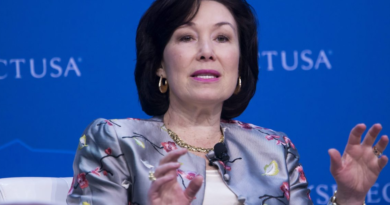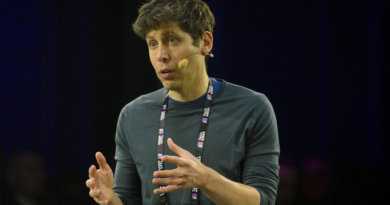Billionaires, celebrities, and CEOs like Bob Iger are investing in U.S. soccer—and the beautiful game’s American gold rush is just beginning
With private equity poised to unleash a flood of institutional funds across pro sports, individual billionaires, CEOs, and Hollywood and sports celebrities are racing against them, time, and each other to cash in on the next gold rush in sports: U.S. soccer.
For decades, U.S. soccer franchises had taken a backseat to other major league teams. That’s all changing with Major League Soccer (MLS) becoming America’s fastest-growing pro sports league.
The six key growth indicators powering MLS’ remarkable rapid rise are:
- Booming attendance: The MLS is averaging 23,00 fans per game, more than the National Basketball Association, National Hockey League, and close to Major League Baseball figures. Some MLS season games routinely draw 72,000 to 82,000 fans, blowing past the last 10 NFL Super Bowl championships.
- Billion-dollar media rights: Apple has acquired MLS rights for $250 million per annum in a deal $2.5 billion in total, nearly three times MLS’ previous deal of $90 million per annum ($720 million in total). Just a year in, Apple’s MLS Season Pass is already winning the Sports Streaming Wars with more subscribers (over 2 million) than YouTube’s NFL Sunday Ticket (1.3 million subscribers).
- High-flying franchise fees: The jump in MLS franchise fees is mind-blowing. Last year, St. Louis City FC paid $200 million. The next new franchise, San Diego FC, paid $500 million—an almost threefold increase in just under two years, the highest among all U.S. men’s major sports leagues. Despite the ever-increasing fees, a startling 10 new teams have joined the MLS in the past 10 years.
- Rocketing median valuations: The average MLS franchise value climbed at five times the rate of growth of other U.S. pro league franchises.
- Insatiable ticket demand: The average MLS ticket price ($45-50) is now higher than the average MLB ticket price ($37), underscoring insatiable appetite from fans. For Lionel Messi’s U.S. debut, demand so outstripped supply that regular season games went for an astonishing $110,000 per ticket.
- Monster venues: With sold-out, soccer-specific stadiums, many MLS teams have been forced to move to larger NFL stadiums. Atlanta, Charlotte, Chicago, and Seattle are just some of the cities where the capacity of MLS venues tower over those of their MLB, NHL, and NBA counterparts. Recently, MLS’s Inter Miami CF mulled moving to the nearby NFL stadium but ultimately chose to have their own stadium (25,000 seats), opening next year. Shockingly it’s larger than the new LA Clippers arena (18,000 seats), which opened this year.
U.S. soccer club valuations are skyrocketing to all-time highs and driving lofty price tags for its teams. Since the MLS launched back in 1986, no teams had been valued at more than a few hundred million. In merely the last two years, four MLS teams are now worth more than $1 billion.
Not only are teams more valuable compared to the rest of the MLS, they are more valuable than teams in other leagues. A few MLS teams’ values rank higher than teams in the NHL, English Premier League, Serie A, La Liga, and close to MLB. A thought unimaginable only a few years ago.
Further fueling the intense investing frenzy are expectations of the impending arrival of soccer superstar Cristiano Ronaldo to the MLS and North America’s World Cup in 2026.
CEOs and entrepreneurs have a knack for recognizing when it’s time to capitalize on unprecedented growth. So, it’s no shocker that a stellar roster of them has invested in U.S. soccer teams.
These titans of industry include:
- Bob Iger, the CEO of Disney (Angel City FC)
- Satya Nadella, the CEO of Microsoft (Seattle Sounders FC)
- Alexis Ohanian, the former CEO and founder of Reddit (Angel City FC)
- Masayoshi Son, the CEO of Softbank (Inter Miami CF)
- Marc Merrill and Brandon Beck, the former co-CEOs and co-founders of Riot Games (LAFC)
- Peter Guber, the CEO of Mandalay Entertainment (LAFC)
- Mike Mahan, the CEO of Fanatics (LAFC)
- Mark Shapiro, the president and COO of Endeavor (LAFC)
- Joe Tsai, a co-founder of Alibaba (LAFC)
- Arthur Blank, the former CEO and co-founder of Home Depot (Atlanta United FC)
The biggest names in entertainment and sports often reach the top by spotting or setting trends. It’s still a surprise that so many of them have gone all in on U.S. soccer franchise ownership.
The star-studded A-list of Hollywood celebrities and sports athletes who have invested in U.S. soccer teams includes:
From the Middle East to Middle America, there’s an impressive array of over 20 international billionaires who have become MLS franchise owners. They know that soccer (aka futbol) is the #1 sport in the world and it was only a matter of time before North America fell for the beautiful game.
Some of the most well-known names in this billionaire boys club include:
- Robert Kraft, the CEO of Kraft Group (New England Revolution)
- Jorge Mas, the chairman of MasTec (Inter Miami CF)
- Mohamed Mansour, the chairman of Mansour Group (San Diego FC)
- David Blitzer, the global head of Blackstone’s Tactical Opportunities group and Founder and Managing Partner of Harris Blitzer Sports & Entertainment (Utah Royals)
- Philip Anschutz, the chairman and CEO of The Anschutz Corporation (LA Galaxy)
- Ted Segal, the founder and president of EJS Group (Houston Dynamo FC)
- Joe Mansueto, the founder and executive chairman of Morningstar (Chicago Fire FC)
- Greg Kerfoot, the CEO and co-founder of Thrive Health (Vancouver Whitecaps FC)
- Jeff Mallett, the managing director of Iconica Partners and managing partner of Mallett Sports & Entertainment (Vancouver Whitecaps FC)
- Mark Mateschitz, the heir to the Red Bull co-founder (NY Red Bulls)
- David Tepper, the co-founder of Appaloosa Management (Charlotte FC)
- Sheikh Mansour bin Zayed Al Nahyan, the chairman of the Emirates Investment Authority and Mubadala Investment Company (New York City FC)
- Ryan Smith, the chairman of Smith Entertainment Group and chairman and co-founder of Qualtrics (Real Salt Lake)
- Stan Kroenke, the chairman and owner of The Kroenke Group (Colorado Rapids)
- Clark Hunt, the chairman and CEO of Kansas City Chiefs (FC Dallas)
- Dan Hunt, the co-owner of Kansas City Chiefs and president of FC Dallas (FC Dallas)
And just two weeks ago, Bolivian-American billionaire Marcelo Claure, the founder and CEO of Claure Group, reportedly paid $150 million for a 10% stake in New York City FC, valuing the team at $1.5 billion. It’s made NYFC the most valuable team in U.S. soccer today, overtaking the top spot from LAFC.
However, there’s one team more than any other responsible for the stratospheric rise of soccer in America—and that team is Inter Miami CF.
Inter Miami CF
Never in history has there been a more popular American soccer team around the world than Inter Miami CF and it can all be attributed to one man: Lionel Messi.
Messi is the most decorated player in the history of soccer and has single-handedly nearly doubled his team’s valuation in just the past year. As a result, Inter Miami CF is the third most valuable team in the league and is widely expected to hit No.1 by next year.
The arrival of soccer’s GOAT to U.S. shores has set off a monstrous surge of excitement here and abroad. From London and Lima to Miami and Madrid, Messi’s Inter Miami Jersey is popping up on streets all over the world.
Inter Miami CF managing owner, entrepreneur and billionaire Jorge Mas, told me, “Our aspirations go beyond just being the best club in the United States. With our global vision, we’ve elevated our Club to stand among the top fútbol clubs in the World.”
He’s successfully executed that strategy, with Inter Miami CF achieving a legendary level of success that equals some of the most famous American sports teams like the Yankees, Dodgers, Cowboys, and Bulls.
In just the last year, the team has shattered dozens of records, including:
- Highest valuation growth rate of any U.S. sports team across all U.S. sports leagues: From $600 million in 2023 to $1.02 billion in 2024.
- Highest revenue growth rate of any U.S. sports team across all U.S. sports leagues: From $60 million in 2023 to $200 million in 2024.
- Most Googled sports team anywhere in the world in 2023.
- Highest Instagram follower growth rate of any U.S. sports team across all U.S. sports leagues (from 1 million in 2023 to 17 million in 2024), and the third most followed U.S. sports team overall on Instagram. The team has more followers than any team in the NFL, MLB, and NHL, including three times as many followers as the Patriots, Kansas City Chiefs, Yankees, and more.
- With 504 million followers, Messi is the second most popular person on Instagram.
- Messi is the most popular sports athlete in America.
- In 2023, Messi’s Inter Miami CF jersey was the best-selling Adidas sports jersey in the U.S. across all sports leagues and the best-selling U.S. team sports Jersey around the world.
- This year, Inter Miami CF is ranked No.1 in the Eastern Conference and is predicted to win the MLS Cup.
San Diego FC
MLS’s newest franchise San Diego FC kicks off with a highly anticipated debut in 2025. British-Egyptian entrepreneur and billionaire Mohamed Mansour is one of its owners.
In his new autobiography, Drive to Succeed, Mansour wrote about his stateside ambitions: “We are hugely optimistic for the future of the sport in America—the sky truly is the limit—and we think the club’s valuation will soar.”
He has every reason to be confident. San Diego is the epicenter of American soccer. It has the nation’s highest youth soccer participation, it’s the No.1 contributor of talent to pro U.S. soccer, and has the third biggest soccer TV audience nationwide.
And it’s not just Inter Miami CF and San Diego FC that are ablaze. The “Messi Effect” has sent shockwaves across the country that even reached women’s soccer.
Angel City FC
As MLS valuations soar, individual investors moved to another fresh playing field in the States called the National Women’s Soccer League (NWSL). Igniting its market has led to an explosive record year for team sales.
First, the Portland Thorns FC sold for $63 million. Then, the Seattle Reign FC was acquired by Carlyle Group for $58 million, nearly 20x the $3.5 million OL Groupe purchased it for only 5 years earlier. That was followed by the San Diego Wave’s sale for a whopping $120 million, 60x its $2 million franchise fee.
The valuation champion is LA’s Angel City FC, which became not just the most valuable women’s soccer franchise in the U.S., but the most valuable women’s sports franchise in the world.
In 2024, Disney CEO Bob Iger and his wife Willow Bay invested more than $50 million, taking the team’s valuation from $180 million to $250 million overnight. The new valuation blasted past the $140 million valuation for the Las Vegas Aces, the most valuable women’s sports team in the U.S. at the time.
“It’s no surprise valuations in women’s football (aka soccer) are growing,” said Club president Julia Uhrman to me. “Angel City drives real value and revenue…we will be the fastest women’s club to reach a billion-dollar valuation.”
Beyond the mega cash of billionaire businessmen, Hollywood’s star power, and the prestige of leading CEOs, it’s important to remember the future of American soccer isn’t just driven by surging club valuations—it’s driven by its fans.
More must-read commentary published by Fortune:
The opinions expressed in Fortune.com commentary pieces are solely the views of their authors and do not necessarily reflect the opinions and beliefs of Fortune.




